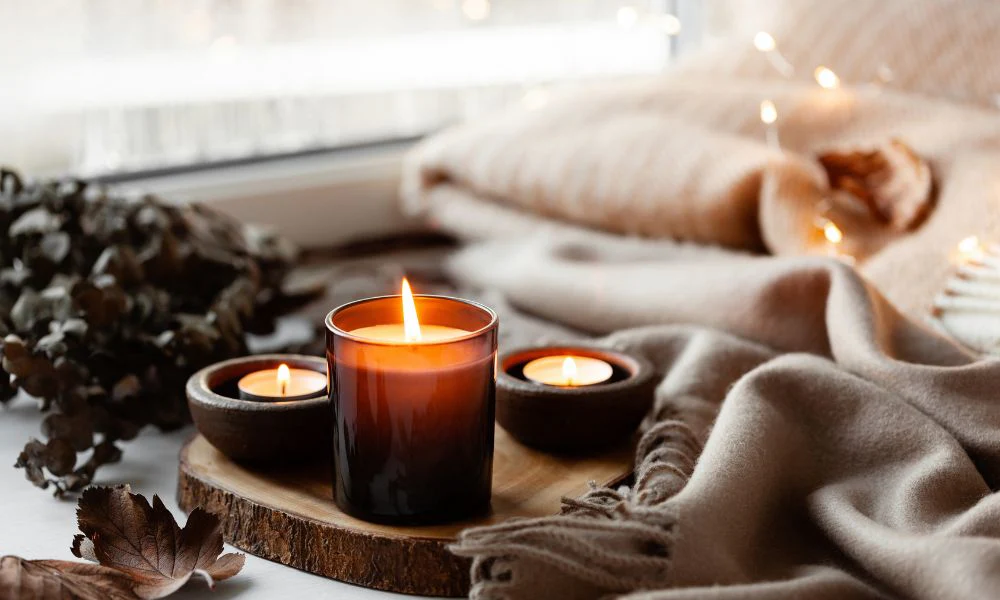Relaxation and Stress Relief With Aromatherapy
3 min read
Long-term stress can affect your mental and physical health. Aromatherapy is a natural and drug-free way to help manage your stress and anxiety.
Your olfactory system sends direct messages to the part of your brain that regulates emotion. Essential oils are concentrated plant extracts that are used for their therapeutic properties.
1. Diffuse Essential Oils
Aromatherapy is the practice of using essential oils to promote physical and emotional wellness. Essential oils are concentrated plant extracts that can be used in a variety of ways, including inhalation and massage.
When you smell a pure essential oil or oil blend (such as Valerian Root, Lavender, or Ylang-Ylang), cell receptors in the nose detect the molecules and send signals to your brain that help regulate emotions. This is how aromatherapy helps reduce stress and anxiety.
To inhale the oils, put a few drops of diluted essential oil on a tissue or cotton ball and hold it up to your nose. You can also place a few drops of your favorite oil in a ceramic diffuser and turn it on. However, it’s important to keep in mind that essential oils should not be the sole go-to items in your self-soothing tool kit. If you experience chronic anxiety or stress, it’s best to seek professional treatment like counseling or medication.
2. Apply Essential Oils
Whether diffused or applied to the skin, the scents of essential oils stimulate your olfactory system—the sensory nerves directly connected to your brain. This can trigger memories and emotions. Luckily, the scents of many essential oils also have soothing and calming effects.
For example, the limonene found in orange oil can help reduce stress, anxiety, and depression because of its natural mood-boosting properties. Similarly, the linalool in rose oil can help balance hormones and relieve tension.
However, aromatherapy is usually a complementary treatment and should not take the place of more serious mental health conditions. For instance, if you suffer from severe anxiety or depression, it’s important to work with a professional. When applying essential oils, make sure to use them diluted with a carrier oil (like jojoba or olive) to avoid irritation and keep your skin safe. Also, make sure you buy your oils from a trusted source because some can be adulterated or contain synthetic ingredients.
3. Inhale Essential Oils
When the right essential oils are used for aromatherapy, they can enhance sleep quality, boost energy levels, promote relaxation and reduce stress. Essential oils are distilled or steam-extracted from plant leaves, bark, stems and flowers. Each oil has its own unique chemical composition that determines both how it smells and its benefits.
The olfactory system in your nose directly impacts the part of your brain that regulates emotion. This is why certain scents can trigger memories and evoke feelings—both positive and negative.
Many studies have shown that the inhalation of aromatherapy can improve mood, relieve pain and lower anxiety. Essential oils can be inhaled using a diffuser, diluted and applied topically or added to a warm bath. A recent study showed that nurses in an ER who inhaled a diluted mix of Patchouli, Orange and Lavender felt less stressed than nurses who did not use the scented mixture. When purchasing essential oils, look for ones that are pure and in dark-colored glass bottles to prevent tainting.
4. Massage with Essential Oils
In massage therapy, essential oils are diluted with a carrier oil and used for their therapeutic effects. This includes reducing stress and anxiety.
For example, limonene in orange oil has been shown to have anti-anxiety properties. Also, rose oil is a natural antidepressant and helps ease stress. Similarly, Patchouli oil can help improve mental alertness and reduce stress levels. In a recent study, nurses in the emergency room who inhaled diluted Patchouli oil reported feeling less stressed than a control group that did not inhale the oil.
Aromatherapy is a safe, drug-free way to relax and reduce stress. However, it should not be a substitute for other treatments such as psychotherapy or medication. If you are experiencing severe chronic stress or anxiety, talk to your health care professional for treatment options. Also, never use undiluted essential oils. They can cause skin irritation. Instead, try using a diffuser or adding them to a bath. You can also use them as a body spray.







